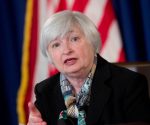Switzerland’s Economy Pressured By Strong Franc
Switzerland’s economy shrunk more than economists expected in the first quarter as foreign demand for the country’s pharmaceuticals and machinery products were hit by the strong Swiss franc.
Gross domestic product during the first quarter was 0.2 percent lower than the previous quarter and 1.1 percent higher than the same quarter last year, said the Federal Department of Economic Affairs, Education and Research. Economists’ calculations stood at 0.1 percent quarter contraction and 1.6 percent of annual expansion. The actual situation turned out to be lower than the expected margins.
After the Swiss National Bank ended a 3½-year policy of capping the franc at 1.20 a euro in January, to keep Swiss export prices competitive, economists placed the estimate of the Swiss economy shrinking by 0.42 percent.
The currency has gained nearly 12 percent in value since the central bank scrapped the cap and has triggered lower sales to the eurozone, the country’s main trading partner which buys half of the exports.
According to Eric Scheidegger, head of Switzerland’s Economic Policy Directorate, a further shrinkage in the this quarter is not far from their expectations, as the Swiss franc stands at around 1.0350 against the euro compared with 1.2020 in the beginning of the year.
“The export sector, as well as the retail and tourism industries have reacted quickly to the strength of the franc, and I think it’s fair enough to expect further weakness in the Swiss economy,” said Mr. Scheidegger.
The dwindling of almost all of the Swiss export sectors, from luxury goods to industrial equipment and pharmaceuticals had not been slowed down, as against expected, by growth in private consumption and investment in equipment.
Due to the strong Swiss franc, exports of goods dropped by 2.3 percent in the previous three months, including pharmaceutical, chemical and industrial machinery sales.
The first-quarter drop was a “logical consequence” of the central bank’s move to allow the franc to float freely, and follows 13 consecutive quarters of economic expansion, said analysts.
“The blows to the export and tourism sectors all fit with the fallout from the strong franc,” said economist Karsten Junius, at J. Safra Sarasin.
European Union economies have expanded with an aggregate growth of 0.4 percent in the first quarter from the previous three months and 1.4 percent from the first quarter last year. Considering that, the Swiss economy is performing worse than its neighbours.
Switzerland’s Department for Economic Affairs will update its GDP, inflation and unemployment forecasts on 16 June 2015.
The Swiss central bank will review its projection of around 1 percent growth on 18 June 2015 after agreeing that the move to allow the franc to float free will cause considerable challenges for the Alpine country’s economy.






